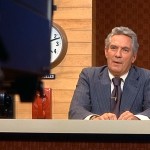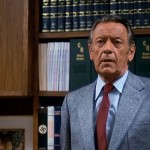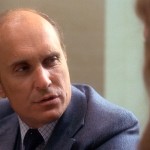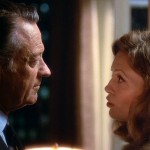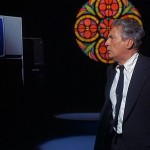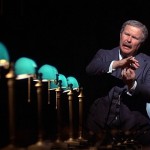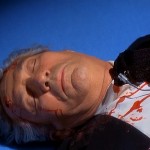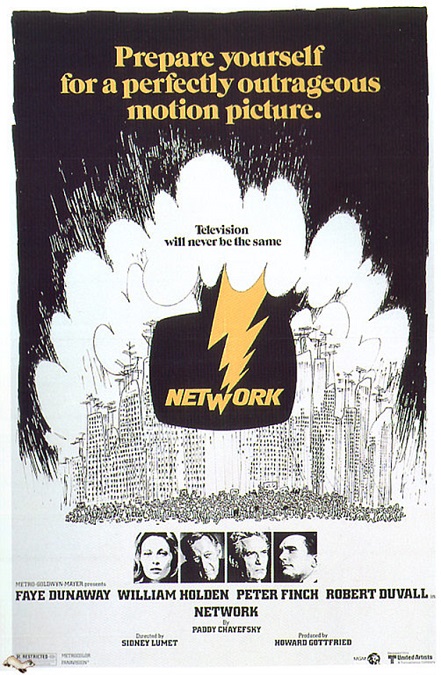
Network – 1976
This was a good movie that I enjoyed watching, but was a difficult movie to place. Wikipedia calls it a “satirical black comedy-drama,” but I’m not sure I’d agree with that. It is certainly a satire, but if it is supposed to be comedic as well, I didn’t see it. It was a film in which the writer, Paddy Chayefsky, was going on an angry rant about the morally and emotionally crippled generation of people who grew up watching the boob-tube. It very pointedly condemns us all as dummies who know, and for that matter, believe, nothing except what we are shown on the devil box.
But it doesn’t stop there. It goes on to say that there is no such thing as freedom, no such thing as democracy, and no such thing as nations. There are only corporations and the money they use to control the world. “It is the international system of currency which determines the totality of life on this planet.” The film is a complaint about the pathetic state of the global conscience. It is this self-righteous anger that produced the film’s famous line which we’ve all heard: “I’m as mad as hell, and I’m not going to take this anymore!”
But, of course, that is only one iconic scene in a 2 hour film. The movie starred William Holden, Faye Dunaway, Peter Finch, and Robert Duvall, with Ned Beatty in a supporting role. The central character was Finch as Howard Beale, a TV news anchor who, during a live broadcast, had a mental breakdown, telling the nation that he planned to commit suicide on the air. Apparently, he had become tragically desensitized to the horrific nature of his broadcasts. He felt no more emotion when reporting mass murders and criminal scandals than he felt when reporting sports or lost puppies. In addition to that, his news program has depressingly low ratings. In his madness, he hears voices and has visions.
Holden plays Max Schumacher, president of the network’s news division. He is a middle-aged man who is Howard’s friend and boss. He cares for Howard as he sees him descending into the madness of a pseudo-religious zealot or prophet. Dunaway plays Diana Christensen, an emotionally dead, ambitious, network programmer who sees the crazy Howard as a resource to exploit in order to raise the network’s ratings. She starts an affair with Max, but cannot feel love or any other kind of emotion for him. She will apparently do anything to improve her network’s ratings. To this end, she wants to program crass sensationalism that put me in mind of shows like The Howard Stern Show or Jerry Springer.
Duvall plays Frank Hackett, Diana’s boss. He is just as ambitious as Diana, but he is also greedy and power-hungry. He approves the implementation of the Howard Beale Show, on which Howard can rant about the ills of society. Beatty plays Arthur Jensen, the president of the network who allows Beale to have his show until one of his tirades hurts one of his business deals with Arab oil corporations, at which point he reigns Howard in and gets him to preach a different gospel.
Like I said, all the characters were larger-than-life and over-the-top. There were a lot of long speeches that were very much like sermons. As I do my research about the movie, I can see why this movie is called a comedy. A lot of the dialogue, when taken out of the context of the plot, is viciously cynical and even humorous. But they were played so straight in the context of the film, that I never once found myself laughing or even chuckling. It was all performed so seriously that I didn’t hear acerbic one-liners. I heard extreme characters.
For example, when Diana meets a character named Laureen Hobbs, played by Marlene Warfield, because she wants to pitch a counter-culture, anti-establishment show that shows real acts of criminal terrorism, she introduces herself, saying, “Hi, I’m Diana Christensen, a racist lackey of the imperialist ruling circles.” Hobbs replies, “I’m Laureen Hobbs, a badass commie nigger.” Diana says, “Sounds like the basis of a firm friendship.” See? It is funny, if you think about it, right? But it was delivered so straight, that you might almost see it as a civil way for the two characters to break the initial tension in an uncomfortable meeting between people who are normally on opposing sides. When you look at it that way, it isn’t funny, it’s just clever.
The movie’s ending wasn’t funny at all. It was biting and horrific, but not funny. The rating of Howard’s show start to tank after he starts preaching Jensen’s depressing message about the illusion of individuality and personal freedom. Diana and Hackett see their hit show dying, but Jensen refuses to take him off the air. The only thing they can do to prevent the network from dying with it is to have Hobbs’s terrorist group assassinate Howard on his live program. The movie ends with a bit of narration saying, “This was the story of Howard Beale: The first known instance of a man who was killed because he had lousy ratings.”
